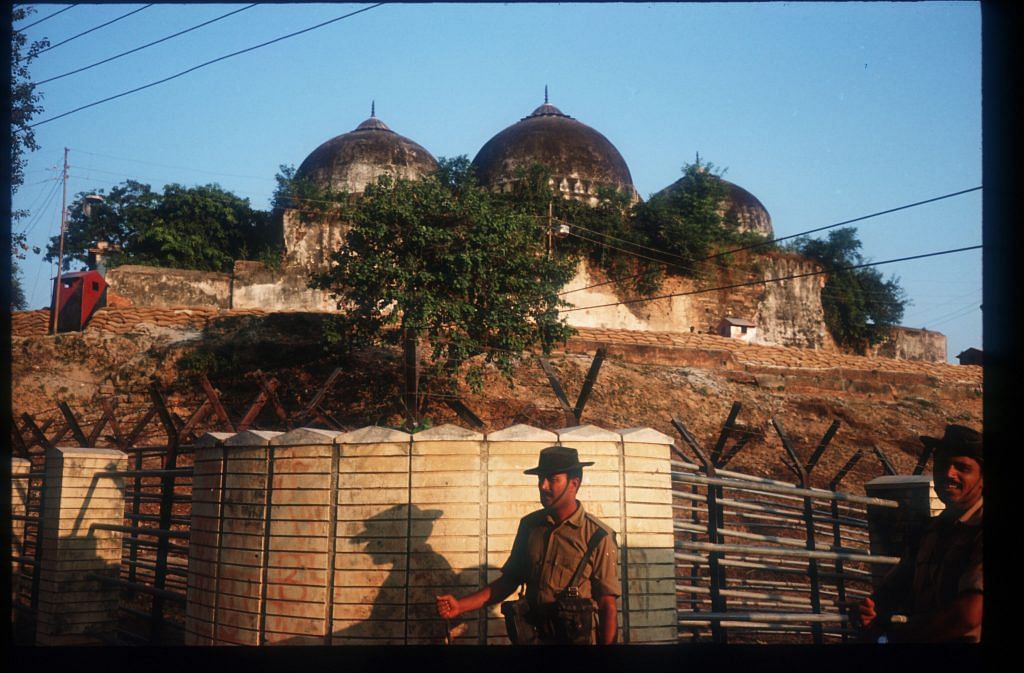New Delhi: The Supreme Court Friday referred the Ram Janmabhoomi-Babri Masjid title dispute case for mediation.
The five-judge constitution bench appointed a panel of mediators that will arbitrate on the issue.
Former apex court judge F.M.I. Kalifulla will lead the panel. Spiritual leader and Art of Living founder Sri Sri Ravi Shankar and senior advocate Sriram Panchu will also sit on the panel.
The mediation will be held at Faizabad in Uttar Pradesh with “utmost confidentiality”. The UP government has been directed to facilitate the proceedings.
Also read: What about Babri Masjid? How land became more important than the mosque in Ayodhya
The panel has been given 8 weeks to arbitrate on this issue and file a progress report within 4 weeks. The panel must commence dialogue within a week and can seek legal assistance if required. It can also invite more participants if deemed so.
The process will be held in-camera and the media has been gagged from reporting on the process.
In the verdict announced Friday, the court observed that there was no “legal impediment” in sending the contentious matter for mediation.
The court backed its verdict by relying on Order 23 Rule 3 of the compromise decree. It further held that if the parties agreed to a settlement, then the top court could direct such an agreement to be recorded and pass a decree accepting the resolution among the parties.
Mediation tussle
The Supreme Court Wednesday heard arguments at length and reserved its verdict on the matter.
The hearing saw vociferous protests from most of the Hindu groups against the suggestion for mediated resolution, whereas the Muslim faction accepted it. Nirmohi Akhara was the only Hindu group that was open to mediation.
The top court was hearing a batch of pleas that challenged the 2010 Allahabad high court order that in a 2:1 majority divided the land three ways between the Sunni Wakf Board, the Nirmohi Akhara and the deity Ram Lalla.
Also read: On Ayodhya dispute case, top court says can’t change what Babur did, must focus on present
